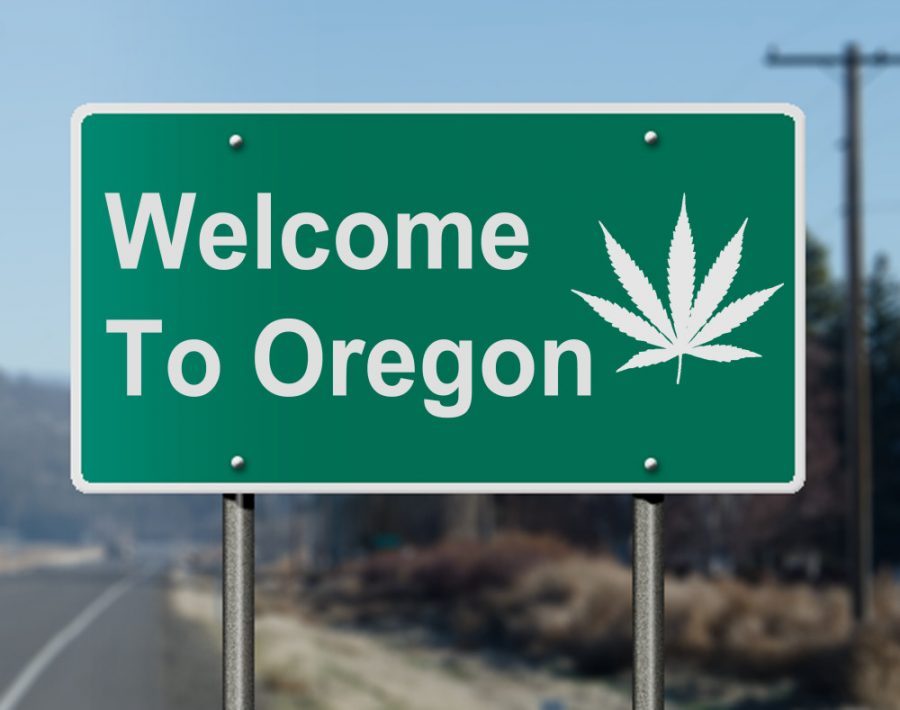New Oregon law eases regulatory strain for cannabis companies
Cannabis regulations in Oregon have been loosened after industry officials claimed that restrictions were stunting business growth opportunities. The news comes following the passing of Senate Bill 408.
According to regulators, the formerly strict regulations were inflicting financial pain on the state’s legal cannabis industry, which is valued at more than $1 billion.
While the provisions outlined in SB 408 are expected to be effectuated on January 1, 2022, there’s a chance that regulators may impose changes sooner than planned; likely by means of an emergency rule-making procedure.
“The passing of SB 408 into law is a huge step towards overhauling and modernizing Oregon’s cannabis regulations — creating a better business environment for the industry,” said co-director of the Oregon Retailers of Cannabis Association, Jesse Bontecou, in an official statement.
Tight regulations have already had a negative impact on Oregon’s cannabis industry. In particular, small business owners were previously limited in terms of scaling and reaching their target market, not to mention competing with larger businesses.
According to executive director of the Oregon Cannabis Association, Kim Lundin, overregulation “jeopardizes businesses of all sizes looking to compete on a national level.”
Oregon’s new cannabis law: Governor signed SB 408 into effect
A number of provisions – many of which are sure to have a monumental impact on the state’s cannabis industry as a whole – are included in SB 408. Signed by Gov. Kate Brown on June 29, Oregon’s new cannabis law features the following rule changes:
- Limits conditions by which the Oregon Liquor Control Commission (OLCC) may deny, approve or process a cannabis license application.
- Permits producer-processor transference of specific cannabis products, in addition to producers who maintain common ownership rights.
- Simplifies the process of tracking documents for delivery purposes.
- Prompts regulators to abide by rules supporting cannabis plant diversity; e.g. permitting qualified producers to obtain seeds from any statewide source.
- Raises edibles concentration limits to put Oregon on-par with competing cannabis-friendly states.
- Grants regulators the rights to establish rules for increased purchase limits.
- Instructs the OLCC to determine methods of reducing plastic usage in the cannabis industry; the Commission must submit its findings to the state Legislature no later than Dec. 31, 2022.
Oregon’s new cannabis law: OLCC will update its name to represent cannabis regulatory changes
Also in recent news, the Oregon Liquor Control Commission has confirmed that it will undergo an official name change in August to include the word ”cannabis.” The goal of this name change is to demonstrate its new regulatory duties. However, the Commission will still hold onto its previous acronym —”OLCC.”
The Commission’s highly anticipated name change was announced following the passing of House Bill 3000, which instructed the commission to collaborate with the state Department of Agriculture and various other state/local agencies.
Collectively, the OLCC, Department and state/local agencies will be tasked with tackling illicit cannabis cultivation and imposing limitations on the sale of cannabis extracts, including THC-containing extractions. This will include prohibiting the sale of THC products to children; including the unregulated psychotropic compound Delta-8 THC, which is available in convenience stores.
“Delta-9 THC is the intoxicating THC that’s found in [cannabis], which our agency regulates,” explained a commission spokesperson. “What this bill does, and what our rules address, are getting those products out of the general market and getting them to a place where they can be sold within the regulated market, because of the fact that Delta-8 THC is an intoxicant.”
On top of these things, a temporary rule was approved by the OLCC on Monday, July 22 that will enable it to test statewide hemp fields for illicit cannabis grows. Based on the temporary rules, new testing methods are to be introduced and limits imposed upon the legally-allowed level of THC in hemp products.








